Pat Bertram's Blog, page 281
February 2, 2012
My Baby Bonsai Forest
On January second, I planted a few black pine seeds as a symbol of starting my life from scratch. I would not have chosen black pines as they are notoriously hard to grow, but they came with a bonsai kit I got as a gift. Oddly, considering what a ungreen thumb I have, all the seeds have sprouted. Now what? Wait, I guess. See what happens. And that's exactly what I'm doing with my life. Waiting to see what happens. Maybe I should go out and make things happen, but life, as with seeds, often flourishes in its own time, and all we can do is wait and see what happens.
Tagged: Black Pine seedlings, bonsai, bonsai garden kit, starting from scratch








February 1, 2012
How Did You Do the Research for Your Novel?
 I researched my novel Daughter Am I for two years, but I also had help from a historian friend, and in fact, he was the one who inspired me to write the book. He used to regale me with tales of gangsters. It got to the point where I couldn't watch a gangster film with him because he'd keep up a running commentary about all the things the filmmaker got wrong, and I'd miss half the story. I did a lot of research myself, though, and it was a special joy when I discovered something he didn't know! Most of the information isn't on the internet, but resides in . . . gasp! . . . books.
I researched my novel Daughter Am I for two years, but I also had help from a historian friend, and in fact, he was the one who inspired me to write the book. He used to regale me with tales of gangsters. It got to the point where I couldn't watch a gangster film with him because he'd keep up a running commentary about all the things the filmmaker got wrong, and I'd miss half the story. I did a lot of research myself, though, and it was a special joy when I discovered something he didn't know! Most of the information isn't on the internet, but resides in . . . gasp! . . . books.
Here are a few ways other authors did research for their books. The comments are taken from interviews posted at Pat Bertram Introduces . . .
From an interview by Deborah J Ledford, Author of Snare and Staccato
I'm part Eastern Band Cherokee and knew that I wanted the Native American element to be instrumental for SNARE. Once I decided on the Tribe to focus on I came into contact with the communications director on the Taos Pueblo in New Mexico. Floyd "Mountain Walking Cane" Gomez read every word of the manuscript as I composed each draft. He either approved scenes, characters and elements, or told me flat out "No, you cannot use this." (he told me this quite often!) Elements Floyd wasn't sure about were cleared by elders and the Taos Pueblo Tribal Council.
From an interview by T. C. Isbell, Author of "Southern Cross"
I spent a great deal of time researching my book. I used period magazines like Post, Life, and National Geographic. Some research was accomplished using old books and the Internet. However, information on the Internet has to be approached with a grain of salt.
From an interview by Polly Iyer, Author of "Hooked"
You'd be surprised how many upscale women write about their adventures as a call girl. Like Tawny, these are smart women who think why not get paid for something they're giving away free. The top women go places with exciting, rich men and make big bucks to do it. Just click on Google, and there they are, telling all.
From an interview with Bonnie Toews, Author of "The Consummate Traitor"
I do intense research so that my facts are as realistic as can be in a fictional setting. I scour libraries, Google, read travelogues of areas I have not visited so that my descriptions are as true to life as possible, either today or in the time of the book's setting. For that I interview people who lived and endured during the period. One interview for The Consummate Traitor was with an actual German aerocraft designer Canada protected so he could work on our Avro jet. He began as a fanatical NAZI with access to Hitler's inner circle (He hated Goring) but by the end of the war, was so disillusioned that he ended up with a disassociated personality. During our interview he split from one to the other depending on what I described that triggered him to relive the past. I gained amazing insight from that interview and gave his hands to my NAZI villain. I have never seen hands like his — his finger tips were square, not rounded, and his shoulders were so slumped that his arms seem to hang too long for his body. I could picture him in an SS uniform with the shoulder paddings squaring off his body. He died a few years ago. He had Parkinson's.
What about you? How did you do the research for your novel?
Tagged: Bonnie Toews, Daughter Am I, Deborah J. Ledford, German aerocraft designer, how to research a novel, research, Taos Pueblo








January 31, 2012
What inspires you to write a particular story?
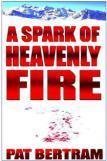 Like most writers, I've written the beginnings of a few books that have gone nowhere. I have zero interest in pursuing them. On the other hand, for various reasons, the books I did write took hold of my imagination and didn't let go until they were completed. For example, A Spark of Heavenly Fire came about because of a Washington Irving quote: "There is in every true woman's heart a spark of heavenly fire, which lies dormant in the broad daylight of prosperity, but which kindles up, and beams and blazes in the dark hour of adversity." I loved the idea of a woman who felt half-dead when everyone else was doing well, but in a time of dying, she came to life. Since I didn't want to do a war story, I created a plague — the red death. I had fun with that, and the story so captured my imagination that I had no choice but to pursue it.
Like most writers, I've written the beginnings of a few books that have gone nowhere. I have zero interest in pursuing them. On the other hand, for various reasons, the books I did write took hold of my imagination and didn't let go until they were completed. For example, A Spark of Heavenly Fire came about because of a Washington Irving quote: "There is in every true woman's heart a spark of heavenly fire, which lies dormant in the broad daylight of prosperity, but which kindles up, and beams and blazes in the dark hour of adversity." I loved the idea of a woman who felt half-dead when everyone else was doing well, but in a time of dying, she came to life. Since I didn't want to do a war story, I created a plague — the red death. I had fun with that, and the story so captured my imagination that I had no choice but to pursue it.
Here are a few inspirations other authors. The comments are taken from interviews posted at Pat Bertram Introduces . . .
 From an interview of Rod Marsden, Author of "Disco Evil" and "Ghost Dance"
From an interview of Rod Marsden, Author of "Disco Evil" and "Ghost Dance"
I was inspired to write Disco Evil because I believe everyone deserves a fair go and that people who go out of their way to be nasty to others really do build up bad karma for themselves. I happen to like quest/adventures stories so that's how Ghost Dance came about. Two of the women in Ghost Dance are based on certain stand up and be counted sort of ladies I know and love in real life.
 F
rom an interview of Malcolm R. Campbell, Author of "Sarabande"
F
rom an interview of Malcolm R. Campbell, Author of "Sarabande"
"The Sun Singer" is about a young man's solar journey. I wanted to look at the other side of the coin, so to speak, and write about the lunar-oriented ordeals of a young woman. Sarabande, my protagonist first appeared in "The Sun Singer." However, I have written her story so that it can be read as a standalone novel, a woman's story that could be whole in and of itself.
 From an interview of J J Dare, Author of False Positive and False World
From an interview of J J Dare, Author of False Positive and False World
I was inspired to write about hidden government agendas and their devastating aftereffects when I thought about why we, as a nation, involve our resources in other nations' conflicts. My biggest inspiration: the eternal, What if?
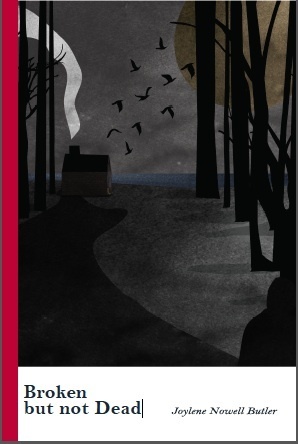 From an interview of Joylene Nowell Butler, Author of "Broken but not Dead"
From an interview of Joylene Nowell Butler, Author of "Broken but not Dead"
Honestly, one day it occurred to me that there weren't enough stories about fantastic 50-year-old women. I wasn't quite 50, but decided that while it might be nice to be young and beautiful like Cheryl Ladd and all those other famous ladies from my era, there's nothing quite like the wisdom and empowerment that comes with age.
 From an interview of Mickey Hoffman, Author of "Deadly Traffic"
From an interview of Mickey Hoffman, Author of "Deadly Traffic"
I was inspired to write the book after reading some nonfiction books about contemporary domestic slavery and human trafficking.
 From an interview of Sheila Deeth, Author of "Flower Child"
From an interview of Sheila Deeth, Author of "Flower Child"
Actually it was a writing competition at our local writing group. The prompt was to write a short piece inspired by music, and I had John Denver's Rhymes and Reasons spinning around in my head — For the children and the flowers / Are my sisters and my brothers… I found myself putting a childhood misunderstanding together with my adult experience.
If you're a writer, what inspired you to write a particular story? If you're a reader, what inspires you to read a particular story?
Tagged: A Spark of Heavenly Fire, Inspiration, Joylene Nowell Butler, Malcolm R. Campbell, Mickey Hoffman, the red death, Washington Irving quote








January 30, 2012
Meeting the Challenges of the Second Year of Grief
A couple of weeks ago I talked about The Five Major Challenges We Face During the Second Year of Grief:
1. Trying to understand where he went.
2. Living without him
3. Dealing with continued grief bursts.
4. Finding something to look forward to rather than simply existing.
5. Handling the yearning.
There are other challenges, of course, some unique to each individual, but all the challenges are dealt with the same way: By continuing to feel the pain when it erupts rather than turning away from it to satisfy the concerns of those who don't understand; by taking care of ourselves even when we don't see the point; by trying new things.
In other words, we meet the challenges of the second year by living. It sounds simple, but nothing about grief for a life mate/soul mate is simple. By living, we begin to move away from our pain, but we also move away from the person we loved more than any other. For some bereft, this feels like a betrayal of their love — how can you continue to live when life on this earth is denied him? For others, it seems like a betrayal of themselves — how can you become the person you need to be without betraying the person you once were?
It seems an impossible situation, yet life does continue whether we will it or not.
 In my case, I've been meeting the challenges of the second year the same way I met the horrendous challenges of the first year. I take long walks almost every day, I exercise (stretching, weight-lifting) two or three times a week. I dance to a couple of songs most days, hoping to train myself to feel lighter in spirit and maybe even learn to have fun — whatever that is. I also try to eat a salad every day and stay away from sugar. At least, that's the goal. I'm very disciplined for several days, following everything on this list, and then I decide the heck with the list — treating myself is more important than doing the right thing.
In my case, I've been meeting the challenges of the second year the same way I met the horrendous challenges of the first year. I take long walks almost every day, I exercise (stretching, weight-lifting) two or three times a week. I dance to a couple of songs most days, hoping to train myself to feel lighter in spirit and maybe even learn to have fun — whatever that is. I also try to eat a salad every day and stay away from sugar. At least, that's the goal. I'm very disciplined for several days, following everything on this list, and then I decide the heck with the list — treating myself is more important than doing the right thing.
Either way, I am moving away from the life we once shared. And I am living.
Tagged: betraying the dead, challenges of grief, death of a soul mate, living, loss, second year of grief








January 29, 2012
Grief: Being Ripped in Two
 One of the truly bizarre aspects of having lost a life mate/soul mate is that his death rips you in two. It's as if the person you were with him still exists, always bereft, always lost and lonely and amputated from him. At the same time, a new person comes to life: the person you are to become without him.
One of the truly bizarre aspects of having lost a life mate/soul mate is that his death rips you in two. It's as if the person you were with him still exists, always bereft, always lost and lonely and amputated from him. At the same time, a new person comes to life: the person you are to become without him.
In the beginning, the person-becoming is so new you're barely aware of her birth. You're only aware of being the person-bereft, someone so awash in grief she sees no reason to live. Gradually, the person-becoming gains strength as you learn to live without your mate. You do new things, eat new foods, have new experiences. And all of these take you further away from the person you once were.
For a while — perhaps for several years after the first horrors of new grief have passed — you toggle between the person-bereft and the person-becoming. Eventually, you remain mostly the person-becoming, though the person-bereft is always there, shadowing you. Certain events, such as anniversaries, or new milestones, such as the birth of a grandchild, catapult you right back into person-bereft, and your loss feels fresh and raw and real.
If you've lost your mate, you know exactly what I'm talking about. If you haven't lost such a significant person, this splitting apart sounds bizarre, and it is. How can you be two people, both a person who looks forward to continued life and a person who wants only to be with their mate?
I had a terrible realization while walking in the desert the other day: he died so I can live. Perhaps his death wasn't as purposeful as that sounds, but our shared life had become a hell. As the cancer spread, the metastases in his brain grew larger and the drugs dosages became stronger. He kept getting weaker and more disoriented, and he turned into a stranger. There were moments that last year when I feared he would last for a very long time, slowly draining my life away. (Not an admirable admission, perhaps, but an understandable one considering the circumstances.)
Twenty-two months and two days ago, he died. And now I have the gift of life. His death gave me that. As much as the person-bereft wishes the whole thing were over with, the person-becoming sees glimmers of . . . not hope exactly, but possibility. I don't know what I will do with this gift, but someday, somehow, I need to find a way to live so that I don't waste his death.
Tagged: dealing with grief, death, grief, loss of a mate, split apart, surviving grief

January 28, 2012
Is There a Message in Your Writing You Want Readers to Grasp?
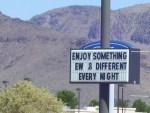 Most writers claim they write only to entertain, and yet messages do creep into our books whether we will it or not. I don't write to entertain but to write the stories I want to read, stories that no one else has written. And still, the messages are there: nothing is as it seems, we are not necessarily who we think we are, history did not necessarily happen the way we think it did, and what we see is not necessarily the truth. But all that was more of a side effect. Mostly I just wanted to write good stories with good characters that I would have loved to read.
Most writers claim they write only to entertain, and yet messages do creep into our books whether we will it or not. I don't write to entertain but to write the stories I want to read, stories that no one else has written. And still, the messages are there: nothing is as it seems, we are not necessarily who we think we are, history did not necessarily happen the way we think it did, and what we see is not necessarily the truth. But all that was more of a side effect. Mostly I just wanted to write good stories with good characters that I would have loved to read.
Here are some messages that crept into other authors' books. The comments are taken from interviews posted at Pat Bertram Introduces . . .
From an interview with Dale Cozort, Author of "Exchange
I'm not big on putting messages in fiction, but one snuck into Exchange. We live in what my daughter calls a 'bubble-wrap' society, one that is obsessed with reducing risk to the point of keeping us from doing a lot of things we want to do and/or need to do. How does that kind of society react to suddenly being in a world that is wilder and more dangerous than the Wild West ever was? A lot of us take the benefits of the bubble-wrapping for granted, but dream about getting away from the restrictions. Unfortunately, the risk reduction and the restrictions are often a package deal. I try not to hit people over the head with that message and you can read and enjoy Exchange without ever noticing it, but it is there.
From an interview with Stephen Prosapio, Author of "Ghosts of Rosewood Asylum"
Typically I like to have lessons and character growth. I like to show how characters make either correct or incorrect choices. Sometimes the difference between good and evil is simply taking the right or wrong action. I'll let the readers take what morals they want from the story.
From an interview with J. Conrad Guest, Author of "January's Thaw"
The January books are composed of a number of messages. In January's Paradigm the reader learns that there are people in the world—men and women alike—who are not very nice, and that men don't have a corner on the mean market. Men, too, can be hurt through a woman's infidelity. One Hot January shows that no government is benign and that we must care about a world we will not see. While January's Thaw is largely about redemption, that it's never too late to close the door on the past and to live in the moment, for tomorrow.
From an interview with Benjamin Cheah, author of Eventual Revolutions
The real world is complicated. Don't seek simple answers. Seek instead complete answers. Don't be satisfied with what people tell you. Always look for the full picture, and discard everything that does not meet the test of logic and reason. Always strive towards a greater understanding of the world, without settling for dogma or over-simplicity. Every action has a consequence. And always remember that you are free – and with this freedom comes the necessity, burden and power of choice.
From an interview with Bonnie Toews, Author of "The Consummate Traitor"
Yes, I do demonstrate a message in all three of the novels in this trilogy. What I have observed at the crossroads of humanity is that victims of atrocities can never forget what they have endured, and their resulting bitterness perpetuates revenge. This convinces me that as long as victim and perpetuator seek retribution against the other, true peace can never be achieved. But, there is an answer: the ACT OF FORGIVENESS. We understand the idea of God's forgiveness, but the act of forgiveness becomes meaningless if we cannot first forgive ourselves and then one another. To make a difference in world peace, victims and their perpetrators must forgive themselves before they can forgive one another and live in harmony.
Is there a message in your writing you want readers to grasp?
Tagged: bubble-wrap society, character growth, Dale Cozort, good vs. evil, message in a book, retribution, Stephen Prosapio








January 27, 2012
Balm to a Writer's Bruised Psyche
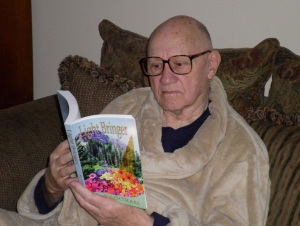 Not only do I not understand this new publish-anything world, I don't understand this everyone-is-a-reviewer world.
Not only do I not understand this new publish-anything world, I don't understand this everyone-is-a-reviewer world.
It used to be that professional reviewers (I am including reviewers employed by newspapers and magazines in this category) pretty much decided what were considered worthwhile books, and readers either paid attention to those recommendations and bought the books or ignored the recommendations and bought whatever they felt like. Today, anyone is a reviewer, whether s/he is qualified or not. All it takes is an opinion. The thing is, readers who see those reviews don't take them as an opinion. They give them the same credence they gave the professional reviewers.
To be honest, I don't know if it's better to have a certain literary elite passing judgment on the books or if it's better to have casual readers doing it. Either way, people are "grading" books based on nothing more than a whim. And those whims can destroy a writer's career, or at least keep people from buying her books.
Light Bringer is my magnum opus, the result of twenty years of research into myths, both ancient and modern. I created an entirely new worldview based on these myths, one that could very well be true if the Sumerian cosmology and today's conspiracy theories are true. According to the editors and agents who rejected the manuscript, it was unsellable. It had too many science fiction elements to be commercial and not enough science fiction elements to be science fiction. Because of this, I purposely did not send Light Bringer out for review. People generally hate books they can not categorize, and at best, Light Bringer has a narrow niche. Still, a few readers have given the book glowing reviews, so when a reviewer contacted me recently asking for a copy of the book to review, I sent it to her.
I don't know why she wanted to review Light Bringer. As it turns out, she's a romance reviewer, and Light Bringer is not a romance and was never promoted as such. Even worse, she hadn't a clue what the book was about. To be fair, she is used to paranormal romances she can quickly skim through, but I don't want to be fair to her since she wasn't fair to me. She wrote a terrible review and posted it on the review site. Why? What's the point of posting a terrible review of a book you don't understand? It's not as if I asked her to review the book. She asked me. Adding to the insult, the review doesn't even make sense. If it didn't have the name of my book on it, I would never have recognized it as my story.
On the other hand, some people do understand Light Bringer and they honor the book with their poetic descriptions.
Sheila Deeth wrote:
Pat Bertram's novel soars in her descriptions of mystery and scenery. The song of the rainbow flows through the characters, binding them together, while the silence of the great unknown drives them and pulls them apart.
The unknown, when finally revealed, is satisfyingly strange, though, unlike many of the characters, I maintain a healthy respect for the integrity of scientists and science. Romantic subplots are simultaneously lyrical and down-to-earth; dialog is natural and sometimes laugh-out-loud fun; secrets of history and astronomy are intriguing; and the whole is a fascinating read — a touch of old-fashioned sci-fi, blended with modern magic and corporate greed, shaken, stirred and conspired against, then woven into beautiful words.
Aaron Paul Lazar wrote:
I'm already a fan of Pat Bertram's books. I've read them all and loved them deeply. But LIGHT BRINGER was something completely new and surprising… surprising in its freshness, originality, its genre bending brilliance. Part thriller, part fantasy, part sci fi, part mystery…its plots were large and complex, encompassing themes that plague us every day; offering social and world commentary blended with weather trend observations (where ARE all those tornadoes and tsunamis coming from??) I do believe Bertram has defined a new genre, and it is a pure delight. Fresh. Original. Riveting. The characters are real and engaging. I particularly enjoyed the bit of romance between Luke and Jane — yes, another subplot. I couldn't put it down and extend my highest compliments to Ms. Bertram for her supremely smooth writing — there are no hiccups in this book. Very highly recommended.
Ah, balm to a writer's bruised psyche.
Tagged: conspiracy theory, Light Bringer, literary elite, magnum opus, reviewers, science fiction, Sumerian cosmology








January 26, 2012
Three Things Television Tells Us About The Future of Writing by Dale Cozort
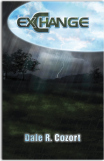 Please welcome Dale Cozort, the author of Exchange, published by Stairway Press. I met Dale during a contest on Gather.com before either of us was published, and we still hang out at The Writin' Wombats, a writers' discussion/support group on the site. Dale writes science fiction; time-blending, mind-bending, brain-teasing novels and essays. These mashups of alternate history, science fiction and mystery realistically reshape the past and create new worlds that never were. Dale is one of the smartest people I have ever encountered — a real thinker — and I am honored that he is a guest here on Bertram's Blog today.
Please welcome Dale Cozort, the author of Exchange, published by Stairway Press. I met Dale during a contest on Gather.com before either of us was published, and we still hang out at The Writin' Wombats, a writers' discussion/support group on the site. Dale writes science fiction; time-blending, mind-bending, brain-teasing novels and essays. These mashups of alternate history, science fiction and mystery realistically reshape the past and create new worlds that never were. Dale is one of the smartest people I have ever encountered — a real thinker — and I am honored that he is a guest here on Bertram's Blog today.
_
Three Things Television Tells Us About The Future of Writing
By: Dale Cozort
Book publishing is going through a transition with an uncertain endpoint. The trends of the last few years in television may give us insights on the future of books, in three areas. As in TV, the transition will involve flattening the pyramid, writers and audiences franticly searching for one another, and increased competition with the past.
I'm showing my age a little when I say this, but when I was very young we had three television networks, each with about three hours of prime-time programming per night. I watched cable television turn those three channels into ten channels and then fifty and then over five hundred. I looked forward to each expansion, thinking that it would free up huge amounts of latent creativity and give me the freedom to watch programs I really liked instead of generic programs intended for a wide audience. That sort of happened, but with some downsides that can help us predict how a similar but even bigger expansion in the number of ways to get a book to the public will play out.
Expanding the ways to market will flatten the pyramid. In the old days of three network channels, TV writers, actors, directors and other creative types formed a steep pyramid. At the top were the stars, directors and writers in hit shows. Below that were the less successful actors, writers and directors who were actually on television or had a show on TV. Below that were a mass of people aspiring to get there, combining bit parts and day jobs to keep up the dream. Aspiring actress often meant waitress. Aspiring screen writer often meant administrative assistant.
The opening up of television meant that while most of those aspiring television types still couldn't quit their day jobs, more of them could, a lot more. More TV channels meant a flatter pyramid, with more people making a living or coming close to it at the bottom end. That also had a downside of sorts: the top of the pyramid wasn't quite as high. As the major networks lost market share, few programs reached the kind of audiences that programs routinely reached in the heyday of the three networks. Smaller markets made it more difficult for the networks to justify the kinds of expenses and production values that they could routinely use earlier.
Until recently, the major New York publishers have played somewhat the same role as the three networks, though they've never had as complete a control of the market for books as the networks had over television. Funneling writing through the major publishers resulted in the same kind of income pyramid we saw in television, though with much lower incomes throughout the pyramid. In terms of income and exposure, there are a very few rich and successful writers at the top, a few more writers who earn a moderate to upper-middle class income, and a huge number of people who never come close to earning an income from writing.
Opening up the publishing process will probably flatten the pyramid for writing, just as it did for television. As in TV, the base should grow; should make it possible for more people to make money writing. At the same time, more publishing venues fighting over a static or declining audience will make it more difficult for people who aren't already at the top of the pyramid to reach the kind of audience size and financial security that existing big name authors enjoy. In other words, it will get easier to earn a few hundred or a few thousand dollars a year writing, but it will be more difficult to be the next Steven King, or even the next moderately successful writer earning a living wage, simply because there will be more competition for reader attention.
Frantically searching for your audience: Television also gives us a preview of the challenge most writers will face in a world with more publishing channels: finding your audience. If I turn on my TV and flip through the channels, I find very little of interest. A lot of times I end up turning off the TV because there not only isn't anything on I want to watch, but there isn't even anything on that I can stand to watch, not even as background. At the same time, I come across quite a few shows that I would have loved, but they came and went before I found them. Finding new programs to watch among five hundred channels is a challenge. Finding new authors to read is already challenging. It will get more challenging as the publishing channels broaden. Finding the people who love would love to read what you write is going to be the biggest problem new writers face as they try to establish themselves.
Competing with the past: If you flip through the five hundred television channels on your cable, you'll notice that an awful lot of them are reruns, with whole networks devoted to bringing you the best TV shows of past decades. E-books especially bring somewhat the same theme to book publishing. There are decades worth of out-of-copyright books out there that can easily go on a Nook or a Kindle. Readers can go directly to Gutenberg Project, or pay a dollar or two to get collections with better organization and extras. Old television competes with new shows for TV-watching audiences. Old books also compete with new ones for reader audiences, and the easy availability of those books on e-readers makes the competition more direct.
As writers who aren't at the top of the pyramid, most of us want to get at least far enough up it to make a living writing. E-books and the ease of self-publishing give us new routes to that, but there are downsides, as we've seen. The new routes to publication mean more competition, readers having more difficulty finding compatible writers and vice versa. The changes aren't all good or all bad, but they are inevitable and writers need to try to understand and adapt to them.
See also:
Future of Books: The Problem of Filtering (part 1) by Dale Cozort
The Future of Books: The Problem of Filtering (Part 2) by Dale Cozort
The Future of Books: The Problem of Filtering (Part 3) by Dale Cozort
Click here to read: Excerpt From "Exchange" by Dale Cozort
Click here for an interview with: Dale Cozort, Author of "Exchange
Tagged: challenges writer's face, Dale Cozort, Exhcange, future of books, New York publshers, television trends, three networks








January 25, 2012
Grief: Feeling The Absence
 I must be getting a grip on my grief despite the recurring upsurges of sadness because more and more I'm seeing the bizarreness of the process rather than simply experiencing it. On Friday, it will be twenty-two months since my life mate/soul mate died and though I've never felt his presence the way some people sense a connection with their dead mates, sometimes I feel his absence as if it's a living entity.
I must be getting a grip on my grief despite the recurring upsurges of sadness because more and more I'm seeing the bizarreness of the process rather than simply experiencing it. On Friday, it will be twenty-two months since my life mate/soul mate died and though I've never felt his presence the way some people sense a connection with their dead mates, sometimes I feel his absence as if it's a living entity.
I was sitting in the dentist chair yesterday, waiting alone for the verdict on my gum infection, when all of a sudden I started crying. We'd always gone together to the dentist, doctors, optometrists, etc, and yesterday, sitting alone, I could feel that he wasn't waiting for me. I could actually sense that he wasn't in the reception area, could feel the substance of his absence like a white hole (as opposed to a black hole). Just one more bizarre aspect of grief.
Oddly, I didn't realize what a comfort his presence was at such times until it was gone. I took his presence for granted (not him — I never took him for granted), but it was as if his presence were part of the very air I breathed, and now that he has disappeared from my life, I'm stuck breathing the standard nitrogen/oxygen mix. And it's not enough.
I don't mind that I don't feel his presence. If he still exists somewhere, I hope he has something more thrilling to do than watch over me, and I certainly hope he has something more thrilling to do than wait at the dentist's office for me. But . . . I truly don't understand how he can be dead. Don't understand where he has gone. Don't understand what death is. Don't understand what life is, either, to be honest.
All I know is that he is gone from my life, and never again will I feel the comfort of his presence.
But it makes me wonder: did he feel the comfort of my presence? I was there at the end of his life. I was there when he took his last breaths. I hope he felt my presence the way I used to feel his. I hope it gave him comfort. Hope it still does.
Tagged: death of a soul mate, dentist, feeling the absence of a loved one, feeling the presence of a loved one, grief, loss

January 24, 2012
"Just Right" and The Power of Three
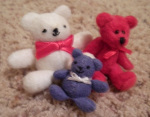 I don't like to get too personal on this blog (well, except for the whole grief thing, though that's beginning to seem less personal and more mythic) but today something happened that is making me veer off my normal track.
I don't like to get too personal on this blog (well, except for the whole grief thing, though that's beginning to seem less personal and more mythic) but today something happened that is making me veer off my normal track.
I needed an antibiotic for a gum infection, and when I went to pay for the order, they told me it would be $67.99. My poor sore tooth about dropped out of my mouth. I'd recently picked up a prescription for antibiotics for someone else, and it came to $11.95. The last time I needed antibiotics, the prescription was $18.50. The pharmacist today said this particular brand was stronger than the others, but when I asked if it was fifty dollars stronger, he wouldn't give me a straight answer. So I called my dentist's office. They agreed that this particular brand was strong, but that another, slightly cheaper one would do as well.
I went back to the pharmacist to pick up the new prescription. I was expecting a twenty- or thirty-dollar transaction, but this time the bill came to $4.00. Say, what? A four-dollar drug gives the same result as a sixty-eight dollar drug? I asked the pharmacist if I should stick with the stronger one. Again, no straight answer, just a bit of mumbling about teeth needing a special antibiotic due to the teeth's connection to the heart.
So, I called my dentist again. Asked if this cheap antibiotic would work as well as the more expensive one. She said, "It should." Um. Should? Not exactly the answer I was looking for. Finally she admitted they should have prescribed the cheaper one in the first place. So. Here I am with my $4.00 antibiotic that seems as underpriced as the first seemed overpriced, and it makes me itchy. Where's the third option, the "just right" one?
"Just right" is the rule that is ingrained in us. We learned the power of three as kids via the story of the three bears. First too much, then too little, and finally, just right. The story would have been completely different and had little appeal if, after trying the papa porridge and finding it too hot, Goldilocks tried the mama porridge, found it too cold, but ate it anyway. Or if, after she lay down on the papa bed and finding it too hard, she tried the mama bed, found it too soft, but fell asleep anyway.
See what I mean about the just right? The antibiotic I'm now taking probably will work, but with the final third of the formula missing, I'll never feel quite right about taking such a cheap medication. And that is exactly what many drug companies count on. A lot of them arbitrarily raise their prices so that they are between the highest and the lowest, knowing it will make us feel just right even if the stuff is no different than the cheaper version. And darn it! It works, even when we know better. Such is the power of three.
(I was checking my blog archive for when I've previously mentioned The Three Bears and the power of three, and I came across this remark I wrote in September, 2009: Someone asked me recently if I ever considered writing a novelization of my life, and I just laughed. There is no story in my life – nothing noteworthy ever happened to me, and I never did anything that millions of others didn't also do. A bit ironic considering that in just a couple of weeks, a book about me and my grief journey will be published. Now that I think about it, I was right. I never did do anything that millions of others didn't also do, but that's the beauty of Grief: The Great Yearning. My journey is universal. And, unfortunately, it isn't a novelization. It's the truth.)
Tagged: antibiotics, dentist, just right, pharmacist, power of three, teeth, The Three Bears





